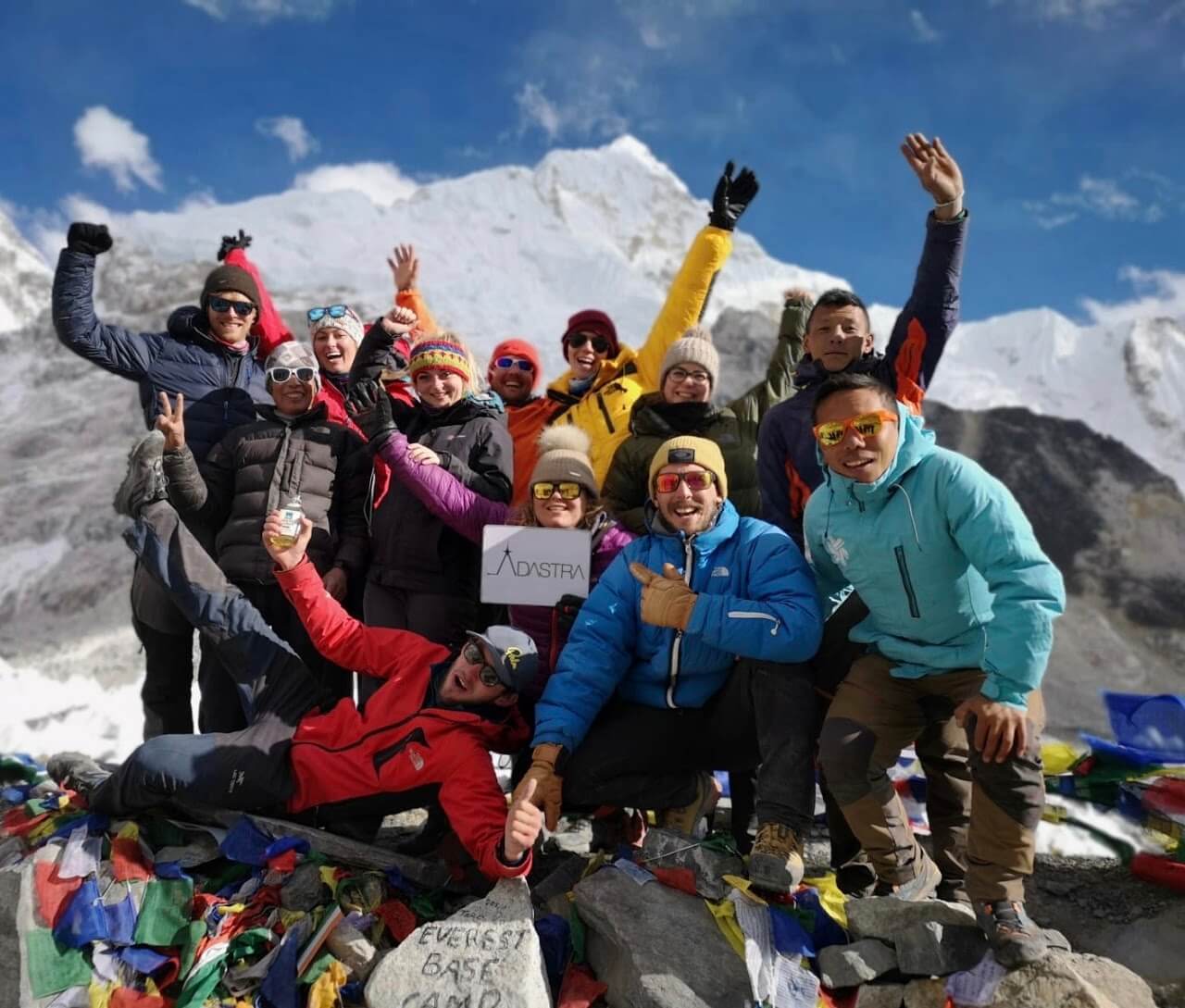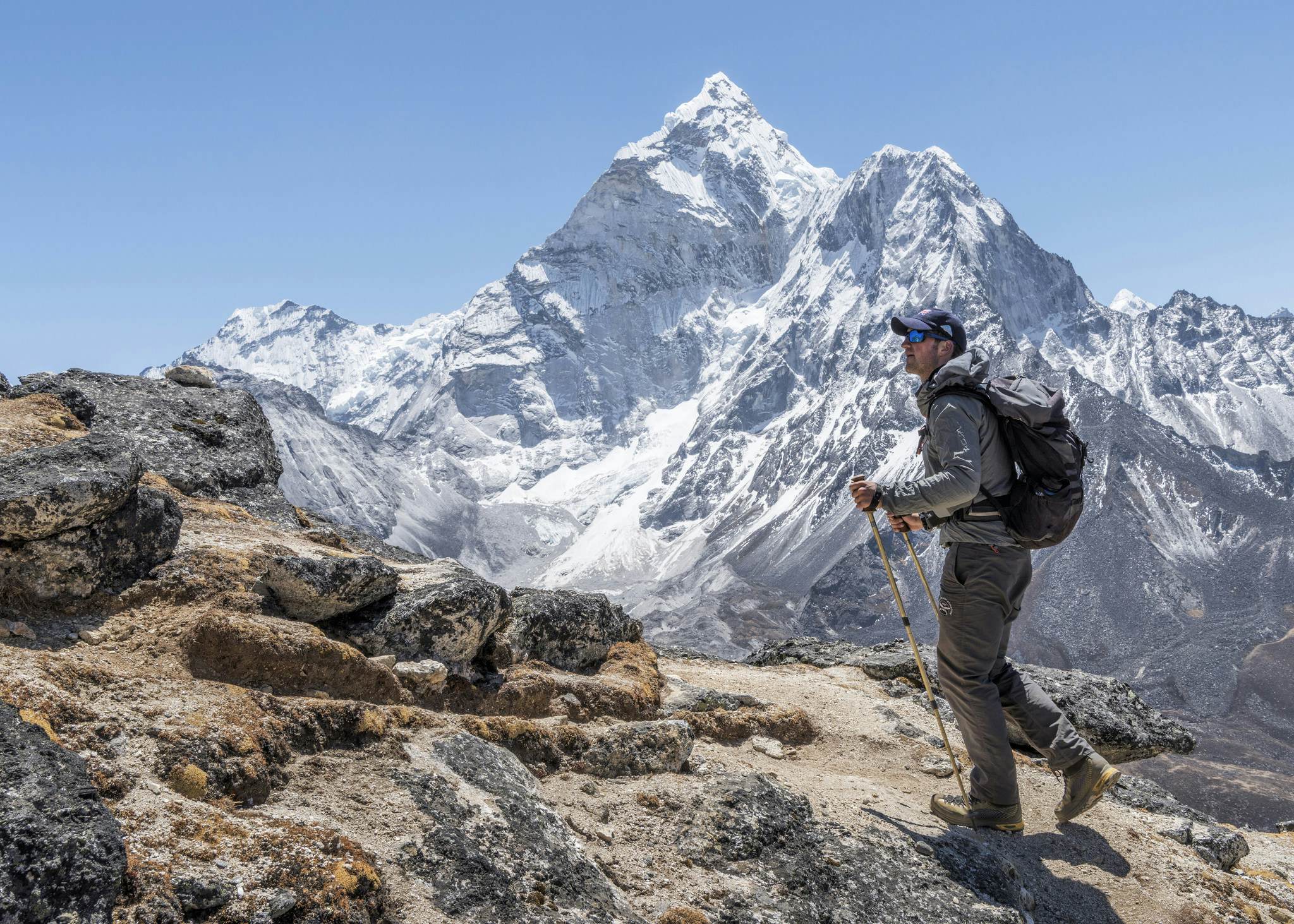The Ultimate Guide to Planning Your Everest Base Camp Adventure

Table of Contents
Introduction to Everest Base Camp Trekking;
The Everest Base Camp Trek is a renowned journey that brings you to the base camp of Mount Everest, the world’s highest peak. This walk, located in Nepal’s magnificent Khumbu area, offers a wonderful adventure through picturesque landscapes, intriguing Sherpa communities, and awe-inspiring mountain vistas. It’s a bucket-list experience for trekkers and wildlife lovers from all over the world.
The hike starts with a picturesque flight from Kathmandu to Lukla, a small alpine hamlet. Then you go on a multi-day trip to immerse yourself in the beauty of the Himalayas. Each step brings you closer to the beautiful Everest as you go through routes that wind through terraced terraces, rhododendron woods, and roaring rivers.
Throughout the journey, you’ll pass through vibrant Sherpa villages like Namche Bazaar, Tengboche, and Dingboche, where you can immerse yourself in the rich local culture and experience the Sherpa people’s wonderful hospitality. Along the trip, you’ll pass by old monasteries draped with prayer flags, prayer wheels, and echoing Buddhist monks’ chants.
The summit of the climb is reaching Everest Base Camp, which is located at an elevation of 5,364 metres (17,598 feet). Standing in the shadow of Mount Everest and observing the sheer size of the surrounding peaks is an unforgettable experience. You’ll be able to watch mountaineers preparing for summit efforts at base camp, immersing yourself in the spirit of exploration and adventure.
While the Everest Base Camp Trek is a physically hard expedition, it is doable for anyone who is fit and prepared. Acclimatisation to the high altitude, slow ascent, and respect for safety standards are all required during the trek. Hiring professional guides and porters is strongly advised to ensure a safe and fun trekking adventure.
The Everest Base Camp Trek is not for everyone.
What to Consider When Choosing a Tour Company?
When choosing a tour company for the Everest Base Camp Trek or any trekking adventure, it’s essential to consider several factors to ensure a safe, enjoyable, and well-organised experience. Here are some key considerations:
- Reputation and Experience: Research the reputation and experience of the tour company. Look for companies with a proven track record of organizing treks in the Everest region. Read reviews and testimonials from previous trekkers to gauge their satisfaction levels. A reputable company with extensive experience is more likely to have knowledgeable guides, well-organised logistics, and a focus on safety.
- Licensed and Certified: Ensure that the tour company is licensed and registered with the appropriate authorities. In Nepal, reputable trekking companies are affiliated with the Trekking Agencies Association of Nepal (TAAN) and Nepal Mountaineering Association (NMA). These affiliations indicate adherence to certain standards and regulations, ensuring the company’s credibility.
- Safety Measures: Safety should be a top priority. Inquire about the safety measures implemented by the company, such as the qualifications and experience of their guides, their knowledge of altitude sickness, and emergency evacuation procedures. Ensure that the company provides adequate medical supplies and carries out regular communication with their teams on the ground.
- Group Size and Support Staff: Consider the group size that the company operates with. Smaller groups often offer a more personalized experience and better attention from guides. Additionally, inquire about the support staff-to-trekker ratio. A good support team, including porters and assistant guides, ensures a smoother trekking experience.
- Itinerary and Services: Review the itinerary provided by the tour company. Ensure that it aligns with your preferences and includes sufficient acclimatization days for safe altitude adjustment. Check the services included in the package, such as accommodation, meals, transportation, and permits. Clarify any additional costs or optional services that may not be included.
- Sustainable and Ethical Practices: Consider the company’s commitment to sustainable and ethical practices. Look for companies that prioritize responsible tourism, minimize environmental impact, and support local communities. This can include initiatives such as waste management, employing local guides and porters, and contributing to local development projects.
- Flexibility and Customization: Evaluate the company’s flexibility and willingness to accommodate specific needs or preferences. If you have specific requirements or wish to customise aspects of the trek, communicate with the company to ensure they can accommodate your requests.
- Cost and Value: While cost is a factor to consider, prioritise value over the lowest price. Cheaper companies may compromise on safety, quality of services, or the welfare of their staff. Look for a balance between reasonable pricing and the quality of the services provided.
Before finalising your decision, compare multiple tour companies, ask questions, and seek recommendations from fellow trekkers or online forums. Ultimately, choosing a reliable and reputable tour company will significantly contribute to the success and enjoyment of your Everest Base Camp Trek experience.
Key Considerations When Choosing a Tour Company for Your Everest Base Camp Trek
When selecting a tour company for your Everest Base Camp Trek, it’s crucial to consider the following key factors:
- Quality of Service: Research the reputation and quality of service provided by the tour company. Look for companies that prioritise customer satisfaction, have knowledgeable and experienced guides, and offer comprehensive support throughout the trek.
- Safety: Safety should be a top priority. Inquire about the company’s safety protocols, including their approach to altitude sickness, emergency evacuation procedures, and the qualifications and experience of their guides. A reliable tour company will prioritize the well-being of their clients and have measures in place to ensure a safe trekking experience.
- Customization and Flexibility: Consider whether the tour company allows for customization and flexibility in their itineraries. Some trekkers may have specific requirements or preferences, such as additional acclimatisation days or alternative routes. A tour company that is willing to accommodate your needs and provide personalised services can enhance your overall experience.
Remember to conduct thorough research, compare different tour companies, and ask specific questions to clarify any doubts or concerns you may have. Choosing a reputable tour company will not only ensure a well-organised and safe trek but also contribute to a more enjoyable and memorable Everest Base Camp experience.
Tips and Advice for Planning an Everest Base Camp Trek;
Hike to Everest Base Camp Trek requires careful preparation to ensure a successful and enjoyable journey. Here are some tips and advice to help you plan your trek:
Physical Fitness: The Everest Base Camp Trek is physically demanding. Prioritise your fitness and endurance training before the trek.
Trekking Season: The peak trekking seasons for Everest Base Camp are spring (March to May) and autumn (September to November).
Packing Essentials: Pack wisely and pack light. Carry essential clothing, including layers for temperature variations, a warm jacket, comfortable trekking boots, socks, and a hat.
Permits and Documentation: Obtain the necessary permits for the Everest Base Camp Trek. This includes the Sagarmatha National Park Entry Permit and the Khumbu Pasang Lhamu Rural Municipality Permit.
Travel Insurance: Review the policy carefully to ensure it meets your needs and covers potential risks associated with the trek.
Hiring a Guide and Porter: Consider hiring an experienced guide and porter. A knowledgeable guide can provide valuable insights, navigate the trail, and ensure your safety. A porter can carry your heavy backpack, allowing you to focus on enjoying the trek. This also supports the local economy and provides employment opportunities for the Sherpa community.
Hydration and Water Purification: Stay hydrated throughout the trek. Carry water bottles and consider using water purification tablets or filters to treat water from local sources. Avoid single-use plastic bottles to minimise environmental impact and support sustainable practices.
Respect Local Culture and Environment: Show respect for the local culture and environment. Learn about the customs and traditions of the Sherpa people, follow the guidelines provided by your guide, and practise responsible tourism by disposing of waste properly and minimising your ecological footprint.
Remember that the Everest Base Camp Trek is a challenging adventure.
Conclusion
In conclusion, planning an Everest Base Camp Trek requires careful consideration and preparation. By following these tips and advice, you can enhance your chances of a successful and enjoyable trekking experience. Focus on physical fitness, prioritise acclimatisation, choose the right trekking season, and pack wisely with essential gear. Obtain the necessary permits and travel insurance, and consider hiring a knowledgeable guide and porter to assist you on the journey. Respect the local culture and environment, stay hydrated, and practise responsible trekking practices.






